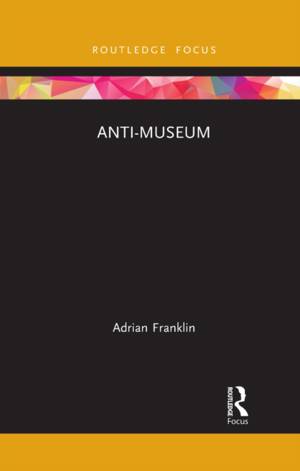
- Retrait gratuit dans votre magasin Club
- 7.000.000 titres dans notre catalogue
- Payer en toute sécurité
- Toujours un magasin près de chez vous
- Retrait gratuit dans votre magasin Club
- 7.000.0000 titres dans notre catalogue
- Payer en toute sécurité
- Toujours un magasin près de chez vous
Description
Anti-Museum charts the development of the anti-museum as a concept and as it has been realised in practice. Drawing on a range of case studies, including the New Museum and PS1 in New York, Mona in Australia, Art42 in Paris and Donald Judd's Marfa, the book assesses their potential to engage museum publics in new ways.
Anti-museums seek to breathe relational and theatricalised vitality into the objects they exhibit, by connecting them to the contexts of their making, to their social life outside the museum, to visitors' lives via their transformative capacities for change, and by being a place of dialogue, exchange and transformation, rather than instruction. Documenting the ways in which they have been created by artists, collectors, and curators, the book also examines the extent to which anti-museums connect with other museums through the exchange of values and resources. Critically, it asks whether, after some 40 years of 'new museology', such institutions are still able to offer something fresh and valuable.
Anti-Museum provides a sharp and incisive account of the anti-museum as it has been imagined, realised and experienced, and as it has relevance for understanding and working in the contemporary museum world. As such, the book will be of great interest to scholars and students engaged in the study of museums, cultural economy, inclusive urban regeneration, the democratisation of art and contemporary art. It should also appeal to museum professionals around the world.
Spécifications
Parties prenantes
- Auteur(s) :
- Editeur:
Contenu
- Nombre de pages :
- 152
- Langue:
- Anglais
- Collection :
Caractéristiques
- EAN:
- 9781032086682
- Date de parution :
- 30-06-21
- Format:
- Livre broché
- Format numérique:
- Trade paperback (VS)
- Dimensions :
- 140 mm x 216 mm
- Poids :
- 185 g

Les avis
Nous publions uniquement les avis qui respectent les conditions requises. Consultez nos conditions pour les avis.






